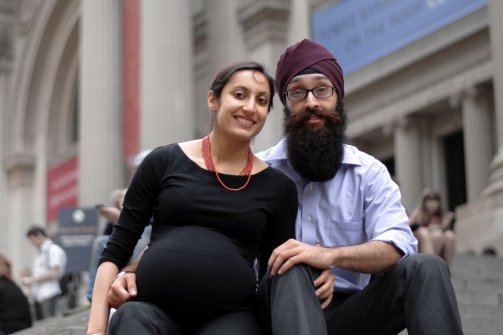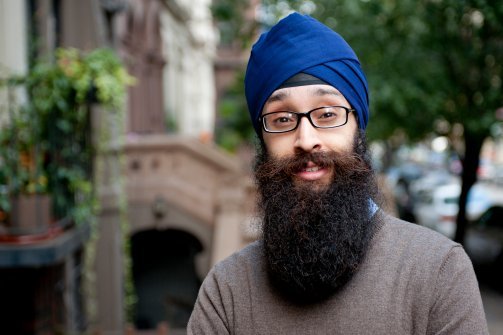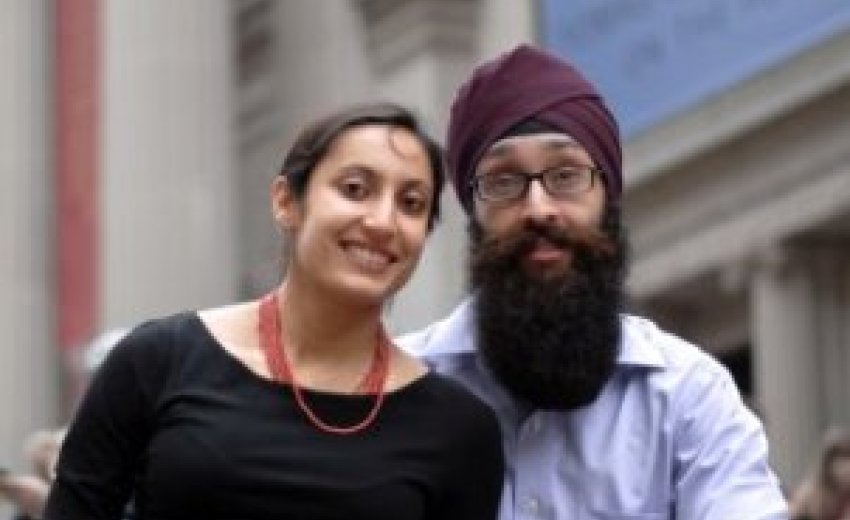A Columbia University professor and doctor who happens to be an American Sikh was attacked in Harlem over the weekend. His wife responds to this ugly and hateful episode with a message of hope and strength.
Sep 25, 2013: As many news outlets in New York City have reported, my husband, Prabhjot Singh, a professor at Columbia University, a doctor, who happens to also be an American Sikh, was the victim of an attack in Harlem on Saturday evening after being called a "terrorist." He was walking along the north side of Central Park when a group of young men on their bikes began to beat him. He was punched a number of times and sustained injuries to his mouth and jaw, but was able to get immediate treatment and is likely to make a full recovery. Very shortly after Prabhjot’s assault, a Somali Muslim woman wearing a hijab was also attacked nearby. This attack hit closer to home than ever before, but this attack wasn’t random and it didn’t happen in a vacuum. In the year since the tragic killings in Oak Creek, Wisconsin, there have been acts of targeted violence against Sikhs in places like Florida, California, and Washington.

(L-R) Manmeet Kaur and Prabhjot Singh. (Scott Breitinger)
In the Sikh spirit of Chardi Kala (joyous spirit), and as the mother of our one-year-old boy, I want to work with our neighbors, local and global, to help create an environment in which our son has nothing to fear. My husband and I both live and work in Harlem and have devoted our careers to addressing conditions of poverty that are often drivers behind sad events like this. Prabhjot, who was born in Kenya, is a local doctor at Mount Sinai Medical Center, a professor at Columbia University, and a father. We have always felt incredibly embraced by this neighborhood and want to reach out to others to help prevent hate crimes against anyone who is perceived as different. It breaks my heart each time I read about an incident against someone based upon race, gender, religion, or ethnicity, but I hope to take this as an opportunity to provoke reflection about ways to work together as a community to prevent hate crimes against individuals of any background. The violence and uneducated anger that my husband endured will not be the world in which my son grows up.
We believe that part of the solution is education. I am troubled by the young age of the assailants and am reminded of how early hatred and racism can begin. As Prabhjot mentioned during his press conference, we must teach our children to appreciated diversity from an early age, in our homes, in our classrooms, and in our neighborhoods. A recent report from The Sikh Coalition shows that more than 50 percent of Asian-American children, including Sikh children, suffer the same taunts—"Bin Laden" "terrorist"–Prabhjot endured before the attack on him. Discrimination and school bullying are serious problems in this country, and this incident makes us even more committed to addressing these issues through proactive education.

Prabhjot Singh in New York. (Scott Breitinger)
Prabhjot and I are steadfast in our belief that our work in community health as well as continuing to share this story will help build awareness of Sikhs’ contributions as American citizens, and how we share American ideals. Two of Sikhism's central principles are the concept of seva, selfless service to others and kirat karni, a focus on earning one's living honestly. This is what motivates Prabhjot and I, and in spite of this unfortunate incident, or perhaps even because of it, our commitment to working with and within the community is stronger than ever. That’s the spirit of Sikhism, but also the power of the American spirit that proudly lives in us both.
Manmeet Kaur serves as Executive Director and Founder of City Health Works and has been a champion for healthier communities and equitable livelihoods for the past 10 years. She is a graduate of Columbia Business School and Barnard College.

